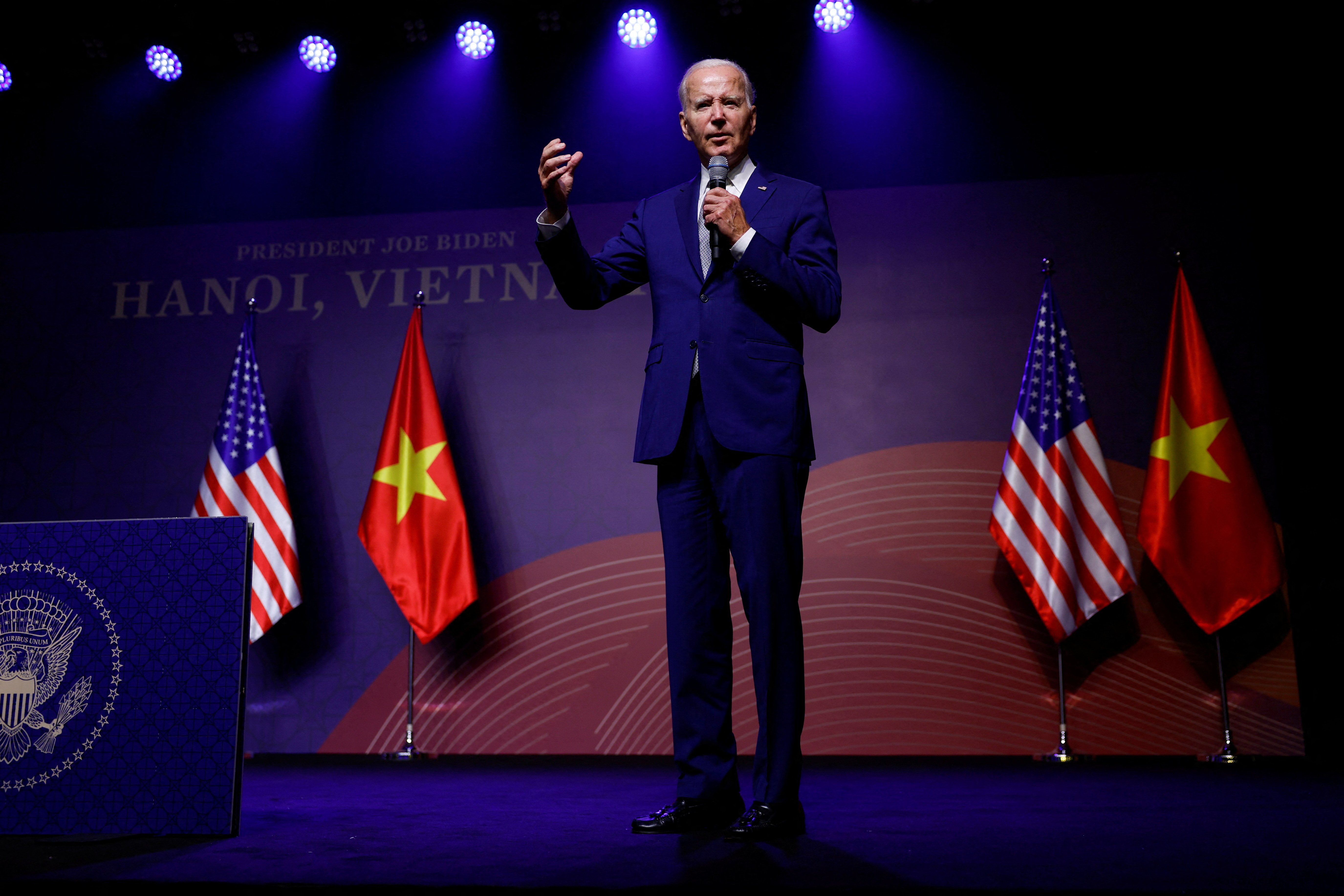US President Biden flew to Vietnamon Sunday for a series of meetings with Communist Party General Secretary Nguyen Phu Trong. Speaking in Hanoi, Biden said the United States had “strengthened our ties with another critical Indo-Pacific partner,” after Vietnam officially elevated its relationship with Washington to the top level of the country’s three-tier hierarchy for bilateral relations, one also bestowed on both China and Russia.
Both countries loom large during Biden’s visit. While the US President denied the trip is about containing China, there is no doubt that increased US engagement aims to temper Beijing’s influence with Hanoi. And it’s not a one-way street: American overtures are welcome for economic and security reasons. Consider that American imports from Vietnam have nearly doubled since 2019, a bright spot while Vietnam’s overall exports fell for a sixth straight month in August due to softening global demand and China’s worsening economic outlook. Making matters worse for Hanoi, Beijing continues to boost its military presence in the South China Sea.
Crucially, Biden is scheduled to announce steps to help Vietnam diversify away from its reliance on Russian weapons. The timing is no accident: according to an internal Vietnamese document, Hanoi is planning to purchase arms from Russia to upgrade its military, through transfers at a joint Vietnamese and Russian oil venture in Siberia.
Still, US officials have warned that without significant overhauls of its infrastructure, there are limits on how much Vietnam’s economy can grow and rival China as a chief exporter of goods to the US and Europe.
